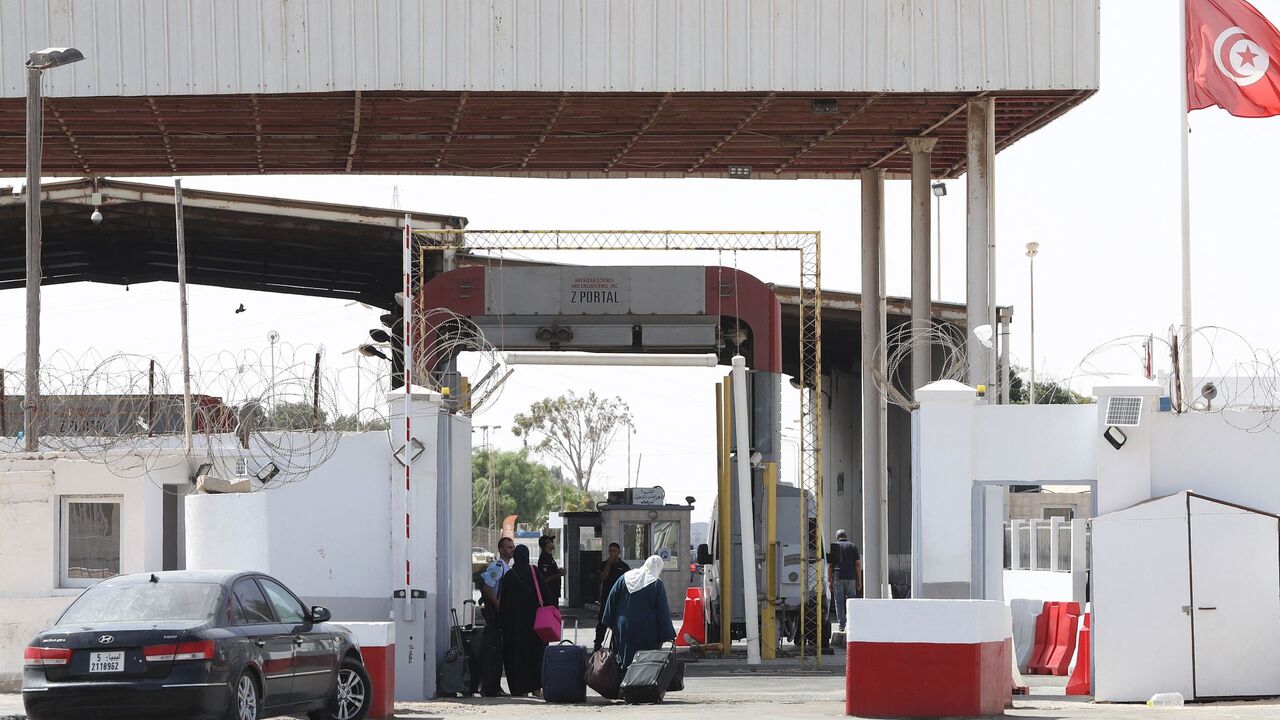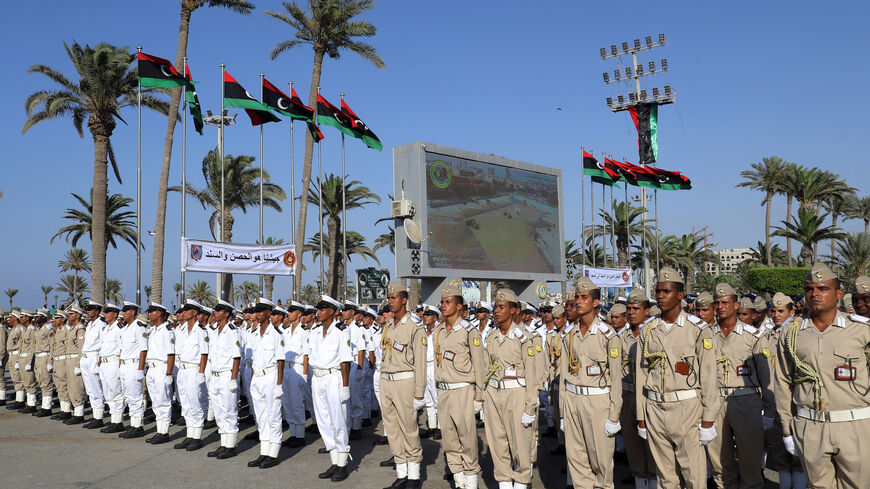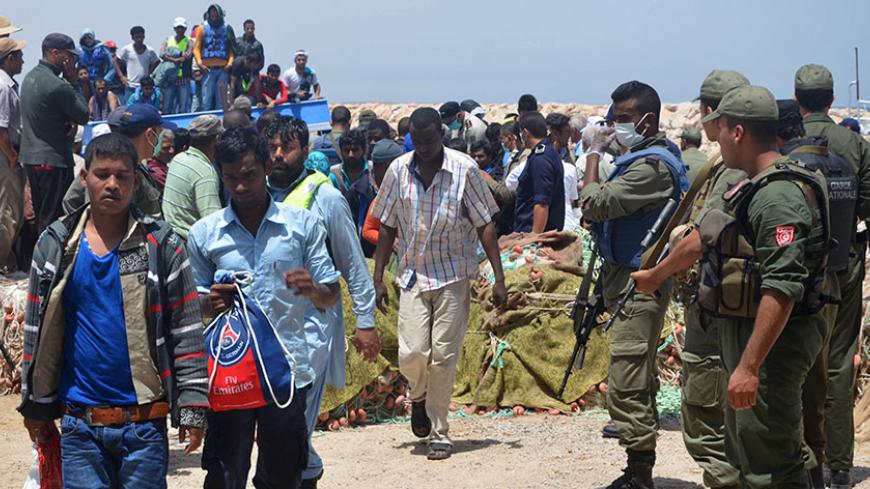What’s behind Libya-Tunisia border closure?
Tunisia closed the troubled Ras Jdir crossing following a security incident. Tunisia and Libya are facing a crisis over migrants seeking to reach Europe.

Authorities closed a border crossing between Tunisia and Libya overnight on Monday as security issues and the migrant crisis continued to plague both countries.
The Libyan Interior Ministry said in a statement Tuesday morning local time that “groups outside the law” attacked the Ras Jdir border crossing with Tunisia.
“This action carried out by these outlaw groups will not be tolerated, and legal measures and the most severe penalties will be taken against those involved,” read the statement.
The ministry did not provide further details.
Footage on social media, purportedly of the incident, showed a burned vehicle as well as people running amid sounds of gunshots.
🎥 اطلاق نار .. مجموعة مسلحة تابعة " للغرفة العسكرية زوارة " تعتدي على دوريات الداخلية في معبر راس اجدير . #ليبيا #المرصد pic.twitter.com/NnbkcBrell
— صحيفة المرصد الليبية (@ObservatoryLY) March 18, 2024
Libyan Interior Minister Imad Trabelsi ordered security officials to travel to Ras Jdir to combat smuggling and security violations in response to the incident, the official Libyan News Agency reported on Monday.
Border crossing at Ras Jdir راس جدير between Libya & Tunisia closed due to armed clashes- Tunisia sent forces security forces to border at weekend to combat smuggling #ليبيا #تونس
— sebastian usher (@sebusher) March 19, 2024
pic.twitter.com/TH2df2CZw0
The Tunisian news agency Tunis Afrique Presse reported on Tuesday that Tunisian authorities closed their side of the crossing overnight following “skirmishes” on the Libyan side.
Some Libyan social media accounts claimed the attack was carried out by an armed group named after the city of Zuwara.
Zuwara is a predominantly Berber-speaking city east of Ras Jdir. Berbers, or Amazigh people, are indigenous to North Africa and speak their own language that is distinct from Arabic.
There have been reports of tensions in the area recently. The Libyan Observer reported in November of last year that some Amazigh leaders opposed the deployment of Libyan state security forces near the city.
Why it matters: Border tensions between Libya and Tunisia are not new. Tunisian President Kais Saied's crackdown on illegal migration last year led to an influx of migrants getting stuck at the border between the two countries. In July, Tunis and Tripoli agreed to jointly provide shelter to hundreds of migrants at Ras Jdir.
Both Tunisia and Libya are common points of origin for people seeking to irregularly sail to the European Union.
The issues have continued since the agreement. The World Organization Against Torture said in December that migrants going through Tunisia face arbitrary detention and expulsions toward the Libyan and Algerian borders.
The Tunisian National Guard said nearly 70,000 migrants were intercepted while trying to get to Italy by way of Tunisia in 2023, more than double the figure in 2022, Agence France-Presse reported in December.
Last month, Tunisia's coast guard recovered the bodies of nine people whose boat sank off the coast of Zarzis near the Libyan border, The Associated Press reported at the time.
Know more: Libya has experienced security issues since the 2011 uprising that toppled longtime ruler Moammar Gadhafi. The civil war in the country ended in 2020, paving the way for a transitional government. However, nationwide elections that were initially scheduled for late 2021 have been indefinitely postponed.







